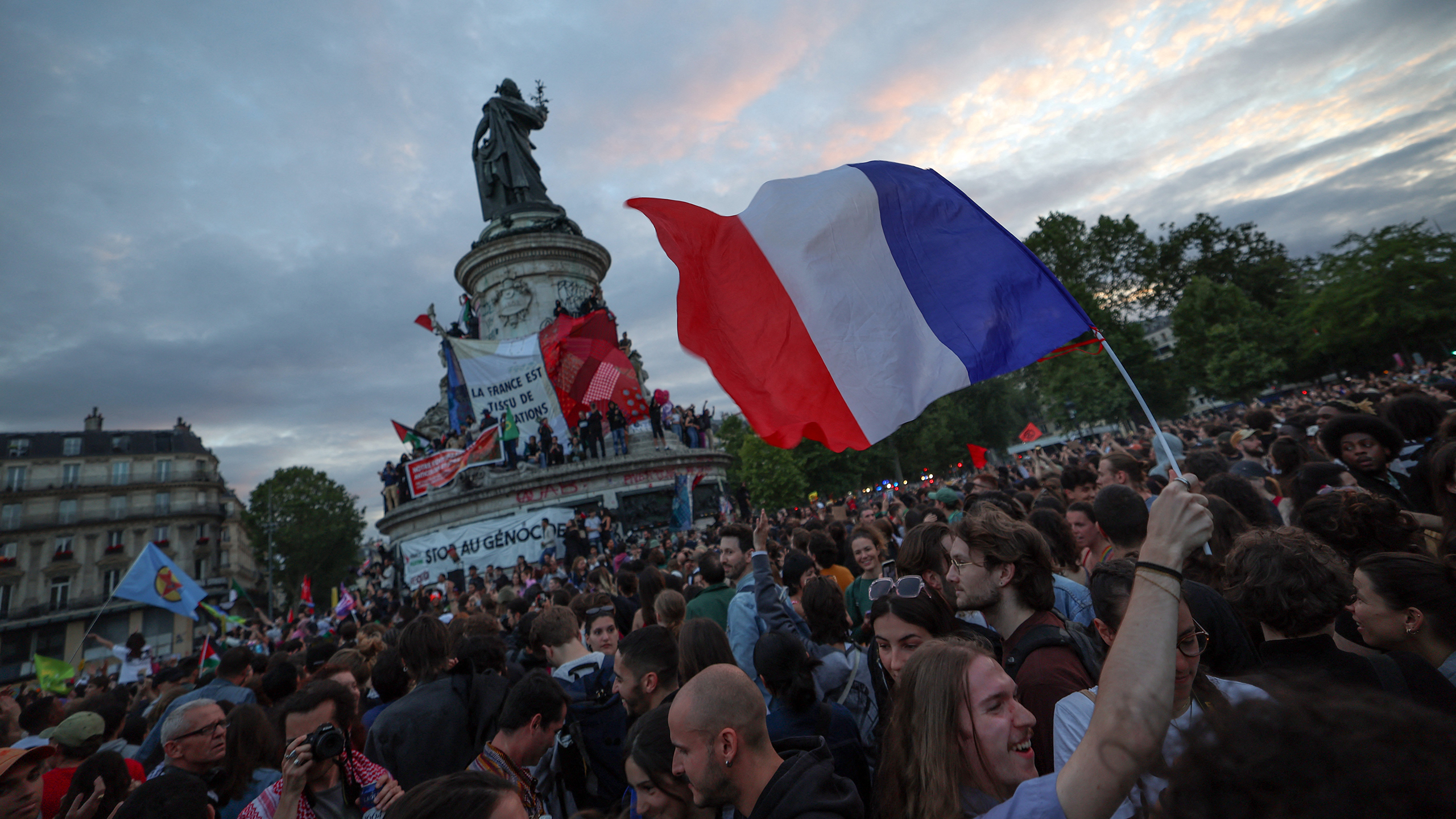

France, a land known for its rich history, exquisite culture, and breathtaking landscapes, is now facing a crisis of epic proportions. But where did the spark come from? Last week’s shooting served as the trigger for riots sparked by the killing of a teenager in a suburb. Hundreds of protesters defied a ban to march in central Paris against police violence, igniting a fire that was already smoldering. However, the embers had been quietly smoking for years, fueled by the complexities of immigration.
France, a nation with a vibrant tapestry of diversity, has witnessed a significant demographic shift in recent decades. At present, there are over 7 million immigrants in this country, comprising around 10 percent of its population. To put it into perspective, imagine 10 people standing before you, and one of them is an immigrant. This concept of immigration is not new to France; it dates back to the early 19th century when people began migrating there seeking new opportunities. The 20th century witnessed France embracing its role as the most open country in Europe, with open arms and open borders. Many migrants arrived from French colonies such as Algeria, Morocco, and Tunisia, seeking a better life.
During the world wars, France found itself in dire need of manpower, and so the migrants came, answering the call. However, this relationship was inherently imbalanced. France, the all-conquering power, saw these Arab and African migrants primarily as laborers rather than equals. The ghosts of this colonial past continue to haunt the present, as France has yet to apologize or acknowledge its historical wrongdoings and war crimes in North Africa.
The French leaders of today staunchly believe that France, the land of equality, liberty, and fraternity, is immune to discrimination. They argue that conducting censuses or surveys based on race and religion is illegal, claiming that society is colorblind. But can we truly solve a problem without first acknowledging its existence? France seems to be struggling with this crucial step.
By 1975, approximately six percent of the population in France consisted of immigrants, a number that remained relatively stagnant for a quarter of a century. However, as we entered the 21st century, the landscape shifted dramatically. The immigrant population experienced rapid growth, reaching the current figure of 10 percent. So, what changed? Where did these people come from?
Around 13 percent of these immigrants have Algerian roots, while 12 percent hail from Morocco. A further 4.4 percent have ties to Tunisia, and 3.8 percent originate from Turkey. These are predominantly non-white individuals, many of whom identify as Arabic, African, and Muslim. But let’s dispel a common misconception: these individuals did not barge into France uninvited. France needed them. Yes, you heard that right. A report from 2022 revealed that approximately 400,000 jobs in France remained vacant due to a labor shortage. To address this issue, France increased its retirement age, but even that wasn’t enough. Migration became a solution, a means to fill the void.
Additionally, we mustn’t forget the existence of undocumented migrants who often live in close-knit communities, taking on odd jobs to survive. In response to these complex challenges, France passed a new immigration law positioned in the center of the political spectrum. President Macron sought to make the legalization of undocumented migrants more accessible. Simultaneously, the law aimed to strengthen border control and deportation measures. And that, my friends, is how the influx of migrants found its way into France.
But the story doesn’t end there. The next chapter involved the crucial task of assimilation, integrating these migrants into French society. Unfortunately, this is where they stumbled. You see, there are two kinds of societies in this world. Some, like the United States, embrace diversity and allow individuals to lead their lives based on their culture. But France prefers a one-size-fits-all approach. Whether you are an African Muslim or an Arab immigrant, you are expected to conform and become a so-called Frenchman to truly belong.
Unsurprisingly, not everyone is interested or willing to abandon their cultural heritage. This failure to bridge the divide has led to ongoing alienation and resentment among the immigrant population, creating fault lines that threaten to tear the fabric of French society apart. Tensions escalate, and a growing fear permeates the white French population. Insecurity grips their hearts. What if they become a minority in their own country? What if France becomes a Muslim nation? These fears have paved the way for the rise of far-right parties, fiercely anti-immigration and sometimes publicly displaying their racism.
Consider this shocking headline from 2022: top French doctors proposing to test the Wuhan virus vaccine in Africa, as if the continent were a mere testing lab. It is a stark reminder of the deeply ingrained racism that persists within French society. This prejudiced attitude is mirrored in the realm of policing. Black and Arab individuals are 20 times more likely to be stopped by the police compared to their white counterparts. In the past three years alone, there have been 21 fatal police shootings, with the majority of victims being black or Arab. This is a clear indication that systemic racism exists in France, festering and unacknowledged.
The immigrant population often finds itself relegated to ghettos, grappling with an unemployment rate of 12 percent, far above the national average of seven percent. France can no longer hide behind its revolutionary values, conceived during a time when it was a predominantly white Christian nation. These values no longer reflect the modern-day France we see today. To make matters worse, certain West African countries still pay a colonial tax to France, a bitter reminder of the past. They are required to store 50 percent of their reserves with a French central bank, perpetuating an unequal relationship.
Now more than ever, France stands at a crossroads. Its leaders must accept that the nation has transformed. The migrants they once brought in for cheap labor and other purposes deserve a place in French society. Failure to acknowledge this truth and make room for change may only perpetuate the cycle of violence and unrest we currently witness.
Now, the question arises: where did the violent riot start? We told you the major causes, but the pointing spark is yet to be told. It all started when a 17-year-old, Nahel, was shot dead on Tuesday morning during a failed traffic stop in the suburbs of Paris. According to the police, they wanted to stop Nahel at a traffic checkpoint because he looked too young to have a driver’s license. They also noticed that his car had polished number plates. But instead of stopping, Nahel allegedly drove his car towards the police as if he wanted to harm them. In response, one of the police officers felt threatened and fired his weapon to protect himself and others on the road. However, as the investigation progressed, it was discovered that the officer didn’t meet the necessary conditions to use his weapon legally. Now he’s facing serious charges of voluntary homicide. It’s a tragic situation that has left everyone shocked and searching for answers.
Following the incident, Nahel’s mother, Munya, made a serious accusation against the officer involved. She claimed that the officer saw her son’s Arab face and treated him unfairly, wanting to harm him for no reason. This statement from Munya added fuel to the fire, intensifying the protests happening across the country. Many people viewed Nahel as yet another victim of police brutality against innocent individuals.
In conclusion, France is facing a crisis fueled by immigration complexities and unresolved historical injustices. The shooting of Nahel served as a trigger, intensifying protests against police brutality. The immigrant population’s struggle for integration and systemic racism have deepened divisions within French society. It is crucial for leaders to acknowledge these challenges and work towards inclusive solutions to prevent further unrest and promote justice.
France, a nation built on the principles of liberty, equality, and fraternity, must now reflect on its past and present to forge a future where every individual, regardless of their origin, can truly belong.



